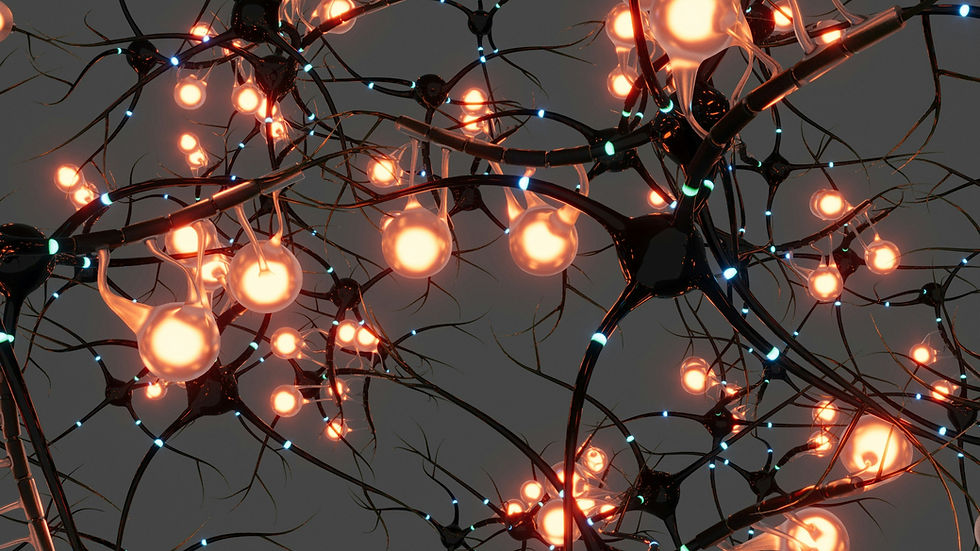Why Friendships Are Essential for Your Health – and How to Strengthen Them
- Feb 6, 2025
- 3 min read

Friendships are more than just a source of laughter and good times—they are a vital part of overall health and wellbeing. Research has shown that strong social connections can lead to longer, happier lives, while loneliness can contribute to depression, anxiety, and even physical health problems.
Dr. Mhairi Bowe, deputy director of the Centre for Applied Behavioural Sciences at Heriot-Watt University, explains:
"When we feel a sense of connection, we recover from illness better, adopt healthier habits, feel safer and less stressed, and are more likely to give and receive support."
One way to think about the importance of social connections is through the concept of a "social biome." Similar to how gut health relies on a diverse range of nutrients, our mental health thrives on regular and varied social interactions—from deep friendships to brief conversations with strangers.
If you feel like your social biome could use a boost, here are five expert-backed ways to strengthen your social connections and improve your wellbeing.
1. Find a Balance Between Social Time and Solitude
While social interactions are key to emotional wellbeing, alone time is equally important. Professors Jeffrey Hall and Andy Merolla, who coined the term "social biome," emphasise that solitude helps recharge social energy, making interactions more meaningful. Feeling comfortable being alone is often a sign that your social needs are being met.
2. Start Small with Meaningful Interactions
Not every conversation needs to be deep to be valuable. Catching up, joking around, or showing appreciation are simple yet powerful ways to strengthen friendships. Even a quick exchange about something that made you laugh can reduce stress and loneliness while fostering a sense of connection.
3. Talk to Strangers – It’s Good for You
Studies show that small interactions with strangers—like chatting with the woman next to you on the bus or making small talk with your barista—can boost overall happiness. Frequent, casual conversations are linked to less loneliness and greater life satisfaction. Even just saying hello or offering a compliment can make a difference.
4. Strengthen Your Communication Habits
Social connections exist on different levels, much like a ladder of communication:
The lowest rung: Engaging with friends and family on social media by liking or commenting on their posts.
Mid-level: Messaging small groups or having one-on-one conversations.
Top of the ladder: Face-to-face interactions, which foster the strongest sense of belonging and emotional connection.
If you’re feeling disconnected, try moving up the ladder—start with more direct messages or phone calls, and work toward spending more time in person with those who matter most.
5. Be Proactive in Expanding Your Social Circle
If you want to build stronger friendships, consider:
Reigniting an old hobby or starting something new—joining a class or activity can help you meet like-minded people.
Getting involved in community groups—volunteer work, local events, or clubs can provide great opportunities for connection.
Exploring Meetup or Facebook groups to find people with shared interests.
Reaching out to old friends or colleagues to reconnect, even if it’s just for a quick coffee.
The Transformative Power of Friendship
For many, actively building friendships can be life-changing.
Monaz Parry, 42, from Kent, discovered this during the COVID-19 pandemic. After losing her father and feeling isolated while caring for a new baby, she realised how much she needed social connection.
"When restrictions eased, I joined a local Zumba class, and everyone was so welcoming. I also went to a local music festival with mums I didn’t know well, which expanded my friendship group," she says.
"People began to say, ‘You look different, you look happier.’ Being with people and having shared experiences has completely transformed my mental health. I feel like myself again."
Building and maintaining friendships takes effort, but the health benefits are undeniable. From reducing stress to improving resilience and overall wellbeing, a strong social biome is just as essential as diet or exercise.
If you’ve been feeling disconnected, start small—say hello, send a message, or make plans. Your health will thank you for it.




Comments